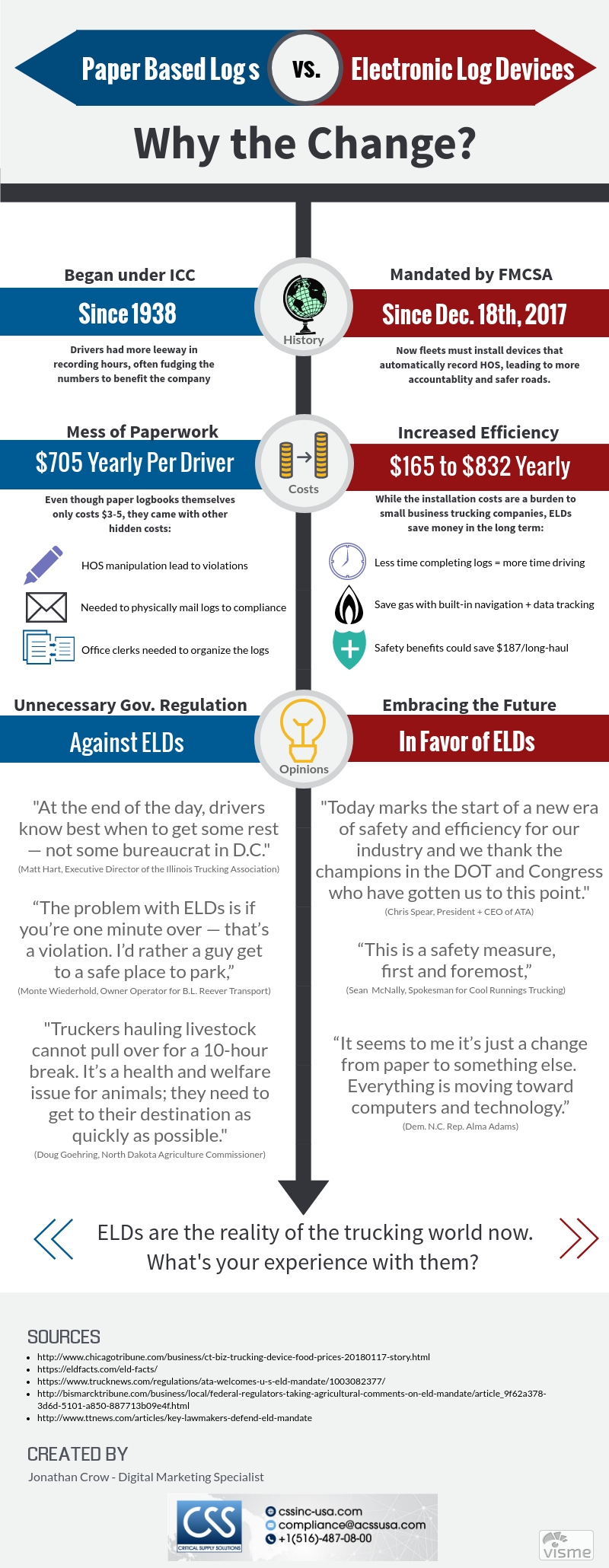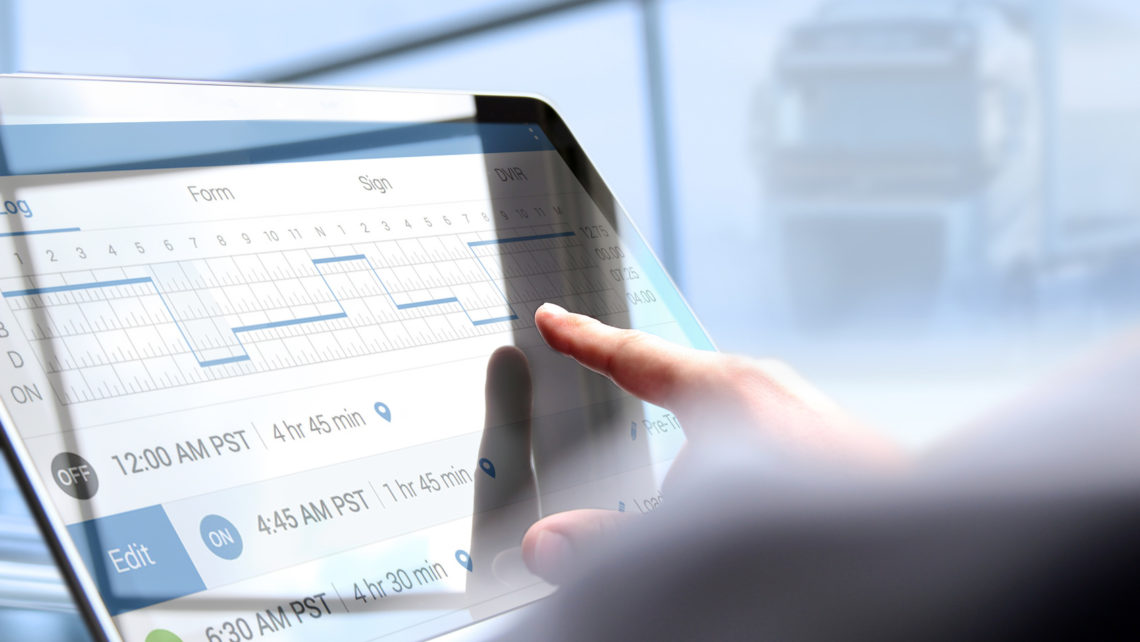In 2015, the Federal Motors Carrier Safety Administration (FMCSA) passed a new regulation that mandated electronic logging devices (ELD) for all commercial driver with a deadline to comply by December, 18th 2017.
Meaning – if even one of your freighters doesn’t have a device installed, your entire fleet will be heavily penalized with fines upwards of $10,000!
The new mandate has been the quite the buzz in trucking news recently as many smaller companies are complaining they will be unable to afford the installations. Certainly, ELDs aren’t cheap, some systems costing as much as $800 a year to maintain.
But ultimately, you cannot afford not to comply given the stiff consequences.
Is your fleet behind the times? It’s time to upgrade.
Why the Change?
Maybe you’re new to the trucking business. To help bring you to speed, let’s review some basics of the industry.
Back in the day, truckers didn’t have much accountability and had the freedom to drive as long as possible to complete a haul. While great in theory, this led to extreme driver fatigue and a high rate of accidents involving freighters. By 1938, the Interstate Commerce Commission created the first hours of service (HOS) rules or the mandated limit on the hours that a driver can operate.
Today, these rules have evolved to be an 11-hour driving limit with a 30-minute break every 8 hours and a 10 hour off-duty period every 14 hours. For those on the job search, these hours help answer the burning question, “how much do truck drivers make?”
Until recently, drivers have always recorded these hours in a physical logbook. So, what was the problem? Well, drivers have a self-interest in fudging the numbers to get additional mileage time in their day and thus more compensation. Most fleets pay by cents per mile (CPM), so limited time to drive means a limited distanced they can travel. Lying in the logbooks would have the benefit of extending the truck driver salary.
The practice of drivers cheating the books compromised their health and safety and everyone else on the road, prompting Congress in 2015 to pass the “Moving Ahead for Progress in the 21st Century”, better known as MAP-21. This legislation directed FMCSA to enact new regulations that eliminated paper-based logbooks and compelled carriers to use ELDs.
These devices automatically track mileage and times as the driver operates. Plus, it cannot be easily manipulated since they are hardwired into the engine of the vehicle.
ELD Exceptions
Change is always scary, but you might be in luck depending on how your company operates. Here are some notable exceptions to the new mandate:
- Pre-2000 Vehicles: If your fleet owns commercial vehicles with motors registered before 2000, they are exempt from the mandate. This is because the ELDs must be electronically configured into engines that were manufactured post-2000. However, this should be no excuse for not updating eventually. Computerized log books keep everyone accountable and safe, as well lowering operational costs in the long term.
- Drive-Away-Tow-Away Operations: In commercial transportation involving tow-aways, meaning the truck is part of the actual delivery, are exempt. Since the driver doesn’t actually own the vehicle, they don’t need to record their hours of service.
- Drivers Under 8 Days RODS: Finally, the mandate gives an exception for drivers who only have to record their HOS for less than 8 days within a 30 day period.
Benefits of ELDs
While a pain to install and get your drivers up to speed for the digital age, there are huge benefits to switching to ELDs:
Reduced Operational Costs
Yes, ELDs are costly to install on every freighter you have. But, in the long term, it pays off by reducing logistical costs. You won’t have to deal with the mess of collecting paperwork from all your operators to process payroll and submission to DOT. And, all the extra navigation apps and programs built into most ELD brands means better navigation and communication. Less time between destinations will equal happy clients.
Accountability
Drivers cannot cheat the system anymore. With more accountability, you’ll know who’s doing their job or not. In the past, a driver could pencil in he took a 30-minute break and actually take a two-hour slumber at a stop with no one really keeping tabs. Now you can track everything they do through most ELD products, such as mileage, fuel consumption, their braking, and get real-time traffic and weather updates.
Simply put: ELDs have revolutionized efficiency in the trucking industry.
Safer Roads
The drive limits placed by the FMCSA aren’t unreasonable or designed to punished anyone. In fact, they’re meant to help drivers monitor a healthy balance between work and their health. Drivers need their time to rest, stretch, and see their families. By following the ELD mandate, roads will be safer for everyone and your drivers, in the end, will thank you.
Everyone hates change because we get stuck in our routines and we like consistency. However, for a long time, truck drivers were controlling their own pay in a serious conflict of interest.
Now we have what should be a welcome change to the business that helps expedite processes for drivers, operators, and clients alike!

